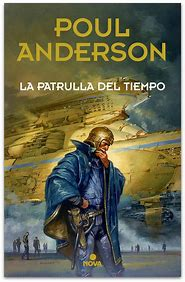"'You tell me that you hail from some two thousand years after Our Lord,' Castelar proceeded. ' That age could be a good harbor for a while. You know your way about in it. At the same time, the marvels should not be too bewildering to me - if this invention was made long afterward, as you have said.' Tamberly realized that he had no dream of automobiles, airplanes, skyscrapers, television...." (p. 692)
However, Castelar does seem to have an understanding of long-term technological progress. He realizes that the witch-horse is not a one-off magical device but an invention that would have had to be preceded by many successive, less marvellous, innovations. Should he even realize that much? Ancient prophetic texts contained no anticipations of future socio-technological progress although some accurately predicted an age of decline.

2 comments:
He's from the Renaissance, and he's an educated man.
He'd be aware, for example, that gunpowder weapons had only become significant recently (this was widely remarked on in military circles), that ships had improved dramatically, that the Atlantic had been first crossed in his father's time, the first circumnavigation of the world had been made in 1516, that printing had started about one lifetime before his, and so forth.
If he pays attention to the arts, he'll be aware of drastic improvements in technique.
The concept of "progress" was in the air. It was still fairly new, and hadn't spread widely, but Castellar might well be familiar with it.
I agree. I had those thoughts somewhere in my head when I was formulating the question.
Post a Comment